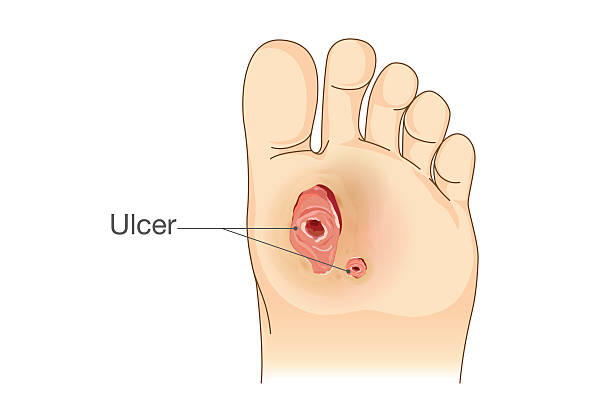Ulcers are open sores or wounds that develop on the skin or mucous membranes, commonly occurring in the digestive tract, such as the stomach (gastric ulcer) or the small intestine (duodenal ulcer), or in the mouth (oral ulcer). Effective ulcer management involves a multidisciplinary approach aimed at addressing the underlying causes, relieving symptoms, promoting healing, and preventing complications. Depending on the type and severity of the ulcer, treatment may include lifestyle modifications, medication, dietary changes, and in some cases, surgical intervention. One of the primary goals of ulcer management is to reduce or eliminate factors that contribute to ulcer formation, such as excessive use of nonsteroidal anti-inflammatory drugs (NSAIDs), infection with Helicobacter pylori bacteria, smoking, stress, and dietary irritants.
Medical management of ulcers often involves the use of medications to alleviate symptoms and promote healing. Proton pump inhibitors (PPIs) and H2-receptor antagonists (H2 blockers) are commonly prescribed to reduce stomach acid production and relieve pain and discomfort associated with gastric and duodenal ulcers. Additionally, antibiotics may be prescribed to eradicate Helicobacter pylori infection, which is a common cause of peptic ulcers. In cases of oral ulcers, topical analgesic medications, antimicrobial mouthwashes, or corticosteroid preparations may be recommended to alleviate pain, reduce inflammation, and promote healing of the oral mucosa.
Furthermore, ulcer management often includes dietary modifications and lifestyle changes to support healing and prevent ulcer recurrence. Patients may be advised to avoid spicy, acidic, or irritating foods that can exacerbate ulcer symptoms and to consume a balanced diet rich in fruits, vegetables, whole grains, and lean proteins. Quitting smoking, reducing alcohol consumption, managing stress, and maintaining a healthy weight are also important measures to support ulcer healing and prevent complications. Regular follow-up visits with healthcare providers are essential for monitoring progress, adjusting treatment as needed, and preventing ulcer complications such as bleeding, perforation, or obstruction. With appropriate medical care, lifestyle modifications, and adherence to treatment recommendations, most ulcers can be effectively managed, allowing patients to experience relief from symptoms and promote healing of the affected tissues.

